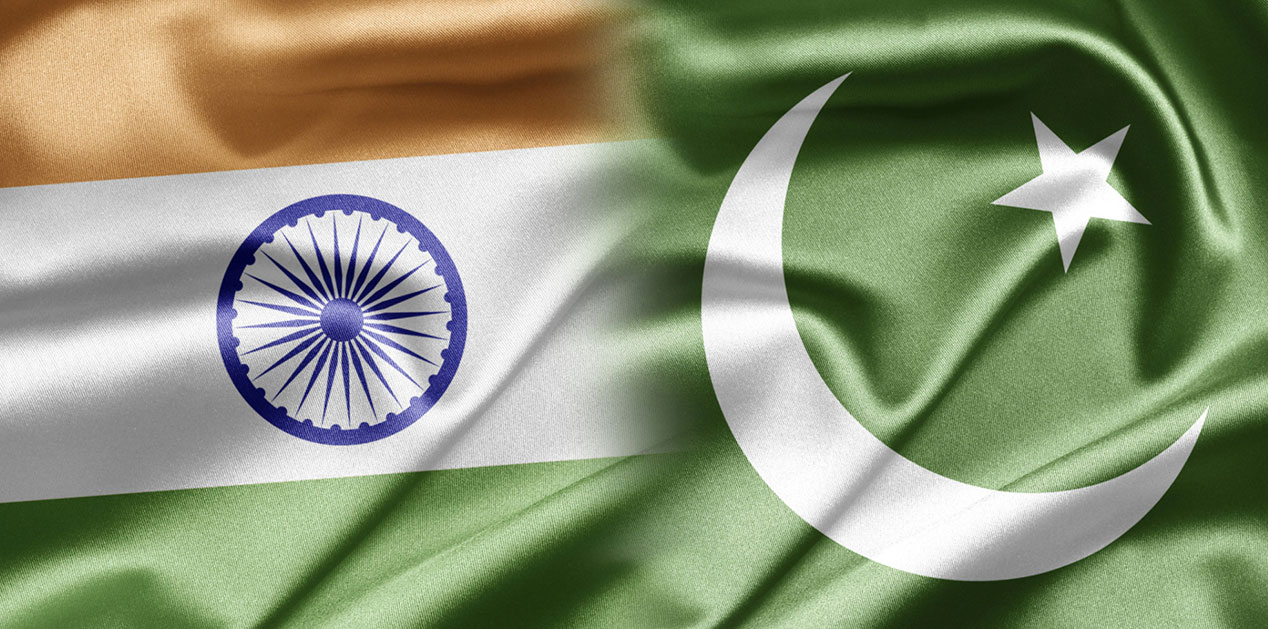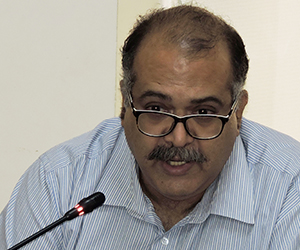2017 marks the 70th year of Independence and the ‘Great Divide’ between India and Pakistan. The 69th year – 2016 – saw a steep deterioration in the already not so normal state of relations between the two countries and it is highly unlikely that the 70th year will see some sort of breakthrough in their adversarial relations. At best what might happen is what has happened innumerable times in the past – one or two steps forward, one or two steps back. In other words, while there might be some cosmetic change in how the two countries deal with each other, there will be no substantive, much less strategic, change that could pave the way for normalisation of ties.
The year 2016 started with some promise. Throughout 2015, Prime Minister Narendra Modi took one initiative after another to reach out to Pakistan – sending the Foreign Secretary to Islamabad under the pretext of a South Asia tour, meeting Nawaz Sharif at Ufa and later at the Paris Climate Summit, sending the NSA to Bangkok to dialogue with his Pakistani counterpart. In early December 2015, India and Pakistan agreed to re-engage in a Comprehensive Bilateral Dialogue. Later that month, Prime Minister Narendra Modi surprised everyone with his impromptu stop-over at Lahore to wish his Pakistani counterpart on his birthday and congratulate him on his grand-daughter’s wedding.
But within a day of the New Year dawning, Pakistani terrorists struck at the Pathankot airbase. The audacity of betrayal and the treacherous conduct of the Pakistani state left everyone except the turn-the-other-cheek Pakistani apologists in India aghast. Matters reached virtual break-point after disturbances erupted in the Kashmir Valley, which the Pakistanis not only incited but also tried to exploit at the diplomatic level. After that, it was one long ride downhill, culminating in the Surgical Strikes and Fire Assaults along the Line of Control. Alongside, India launched a diplomatic campaign to try and isolate Pakistan and also started re-evaluating non-kinetic measures like Indus Waters Treaty that could be used to impose costs on Pakistan.
But on the eve of 2017, there are once again some straws in the wind that suggest another thaw might just be in the offing – the LoC has been more or less quiet ever since the Pakistani DGMO spoke to his Indian counterpart after the fierce fire assaults by the Indian army against Pakistan army posts; Prime Minister Modi wished Nawaz Sharif on his birthday (albeit through twitter); the Indian side didn’t respond to the Nagrota attack, probably in order to see if the new Pakistan army chief would follow a policy different from his predecessor; Pakistanis released over 200 Indian fishermen as a goodwill gesture; in a backhanded sort of way, the chief of Pakistan Army’s Southern Command ‘invited’ India to join CPEC and ‘share the fruits of future development by shelving the anti-Pakistan activities and subversion’ (which in real terms means absolutely nothing, but purely from the point of view of optics is seen as a gesture).Some Pakistani newspapers and analysts are already speculating that both countries could re-engage after the end of the assembly elections around March 2017. Meanwhile, a purported interview of an unnamed Indian diplomat suggests that Prime Minister Modi might make yet another overture to Pakistan.
If indeed yet another attempt is made in 2017 to re-engage Pakistan, it is likely to end up no different from previous such efforts – a dismal failure. The reason for this is simple: there is no change whatsoever in the objective conditions that exist between India and Pakistan, neither domestically in the two countries nor diplomatically, that would raise any hope of a possible breakthrough. While many in India seem convinced that Pakistan has been shown its place in the international pecking order and has been pushed to a point where it will have no choice but to become more reasonable, and therefore amenable, to not only deliver on its commitments on terrorism but also to resile from its false claim on Kashmir, the reality is quite different, at least the way Pakistan perceives it. In other words, there is neither any compulsion nor any incentive for Pakistan to change its inimical approach to India.
Although Pakistan has got no traction on the issue of Kashmir and at least insofar as South Asia is concerned India has managed to successfully isolate it, the Pakistanis are convinced that new strategic alignments that are taking shape more than compensate them for their losses in Kashmir and South Asia. The Americans are still not willing to call Pakistan’s bluff and punish them for their double-game in Afghanistan. The Chinese are pumping in money and hold the promise of transforming Pakistan’s ailing economy. In addition, the Chinese have got Pakistan’s back in international forums and will continue to defend Pakistan’s interests. Most of all, Pakistanis think that even if the US was to turn hostile, they can ride out the storm with China’s economic, diplomatic, military and political support.
Meanwhile, the Russians are getting close to Pakistan and are virtually endorsing Pakistan’s Afghan policy of bringing in the Taliban in order to keep the Islamic State at bay. The developing Sino-Russian-Pakistani entente will completely change the strategic scenario in the entire region. What is more, the Iranians and Central Asians are continuing to remain engaged with Pakistan and the Arab world is far from turning its back on the Pakistanis. While Pakistan’s capacity for delusion and miscalculation is limitless, the bottom-line, as far as the Pakistanis are concerned, is that they don’t need to compromise with India and can in fact confront India successfully. In such a situation, any outreach to Pakistan will not only embolden Pakistan, but worse, reaffirm the Pakistani perception that they have got a leg up on India, which is now desperate to control the potential fallout of a Pakistan running rampant.
While the external front is looking up for Pakistan, even internally there is little to suggest that there is any inclination to improve relations with India. The army remains averse to any reconciliation with India. The public opinion is also not exactly well disposed towards India. This means that even if the civilian government was interested in improving ties with India, and this is a very big if because everything on ground suggests that there is no such desire, it will be hemmed in by the assertive military and antagonistic public. Even otherwise, the civilian government has been in the forefront of the poisonous propaganda campaign against India at the diplomatic level – the latest is another ‘dossier’ containing ‘proof’ of India’s involvement in terrorism in Pakistan – and has opened many fronts from which it will find it difficult to pull back from. In any case, the thinking in the Nawaz Sharif coterie is that it can continue with 1990s policy where engagement and enmity (the most egregious manifestation of which is the export of terrorism) continue along parallel tracks.
Clearly, unless Pakistan is disabused of these grand delusions and fanciful notions, engaging them at any level will not just be an exercise in futility but also tantamount to rewarding Pakistan for rank bad behaviour. What is even more important is to not allow domestic politics to become a factor in India’s Pakistan policy. Any engagement or estrangement with Pakistan based on the election cycle will be a huge mistake and will rob India’s Pakistan policy and posture of the serious resolve that needs to be effectively signalled to the adversary. Instead, it will infuse a sense of destructive cynicism that will prove extremely damaging for India’s credibility.
As things stand, it is a virtual given that any initiative with Pakistan will end up as a dismal failure and is therefore best avoided. It is time that instead of the 69 year long policy of constantly repeating the mistake of imagining that peace is possible with Pakistan even though there is no real change either in the Pakistan’s paradigm or even in its perception of India as an enemy, in the 70th year India should adopt a policy of strategic disengagement until the objective conditions change in a way that it works in India’s favour to re-engage Pakistan. If this means slugging it out for a decade and even longer than so be it. Any premature engagement or softening will however mean a return to the old policy of a step forward followed by a step back.
Published Date: 9th January 2017, Image Source: http://www.utv.com.pk











Post new comment